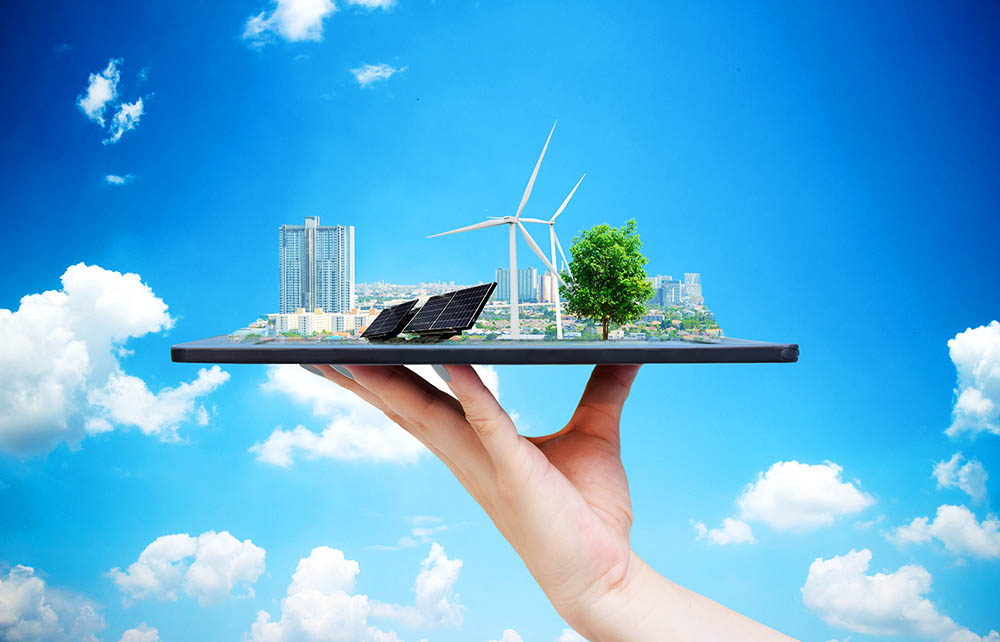Why Sustainable Development is Critical For Our Future
Sustainable development is a term that is thrown around a lot these days, but what does it really mean? In simple terms, sustainable development is the practice of meeting the needs of the present without compromising the ability of future generations to meet their own needs. Essentially, it is a way of ensuring that we are leaving the planet in a good state for future generations to thrive.
One of the biggest challenges we face today is the impact of human activities on the environment. Climate change, pollution, and loss of biodiversity are just a few of the major environmental issues that are threatening the planet. Sustainable development aims to address these issues by promoting economic growth, social development, and environmental protection.
Join The Movement
There are many ways that individuals, businesses, and communities can embrace sustainable development and contribute to a better future. Here are a few key concepts to keep in mind:
Reduce Your Carbon Footprint
One of the most significant ways that individuals can impact the environment is through their carbon footprint. Carbon dioxide is a greenhouse gas that contributes to climate change, and by reducing your carbon footprint, you can help to mitigate the impacts of climate change.
There are many ways to reduce your carbon footprint, such as:
– Using public transportation or carpooling instead of driving alone
– Walking or biking instead of driving short distances
– Using energy-efficient appliances and light bulbs in your home
– Installing solar panels or other renewable energy sources
– Eating a plant-based diet or reducing your meat consumption
Support Sustainable Businesses
As consumers, we have the power to support businesses that prioritize sustainability. By choosing to support sustainable businesses, we are sending a message that sustainability matters.
Before making a purchase or choosing a service, do some research to see if the business prioritizes sustainability. Look for certifications such as Fair Trade, organic, or B Corp. You can also check if a business has a sustainability report or policy on their website.
Get Involved in Your Community
Sustainable development requires collaboration and action at all levels, including the local level. By getting involved in your community, you can help to promote sustainable practices and create positive change.
There are many ways to get involved, such as:
– Volunteering for local environmental organizations
– Participating in community clean-up events
– Attending city council meetings and advocating for sustainable policies
– Starting a community garden or composting program
– Joining a local sustainability group or club
The Economic Benefits of Sustainable Development
In addition to the environmental benefits of sustainable development, there are also significant economic benefits. Here are a few examples:
Cost Savings
Many sustainable practices can actually save money in the long run. For example, investing in energy-efficient appliances or renewable energy sources can reduce energy costs over time. Similarly, reducing waste can lead to cost savings on disposal fees.
New Business Opportunities
As sustainability becomes more of a priority, there are increasing opportunities for businesses to create new products and services that meet the demand for sustainability. This can lead to economic growth and job creation.
Increased Resilience
Sustainable development can also increase the resilience of communities and businesses in the face of environmental and economic challenges. For example, investing in renewable energy sources can help to mitigate the impacts of rising energy costs or shortages.
The Role of Governments and Policy-Makers
While individuals and businesses can take important steps towards sustainable development, the role of government and policy-makers is also critical. Here are a few ways that governments can promote sustainable development:
Policies and Regulation
Governments can implement policies and regulations that incentivize and enforce sustainable practices. For example, implementing a carbon tax can provide a financial incentive for businesses to reduce emissions.
Investments
Governments can also prioritize investments in sustainable infrastructure, such as public transportation or renewable energy sources. This can lead to economic growth and job creation, as well as environmental benefits.
Education and Awareness
Finally, governments have a role to play in educating and raising awareness about sustainable development. This can include initiatives such as public outreach campaigns or school programs that teach children about sustainability.
Conclusion
Sustainable development is critical for our future, and it requires action and collaboration at all levels. By reducing our carbon footprint, supporting sustainable businesses, getting involved in our communities, and promoting sustainable policies, we can create positive change and build a better future for ourselves and future generations.
